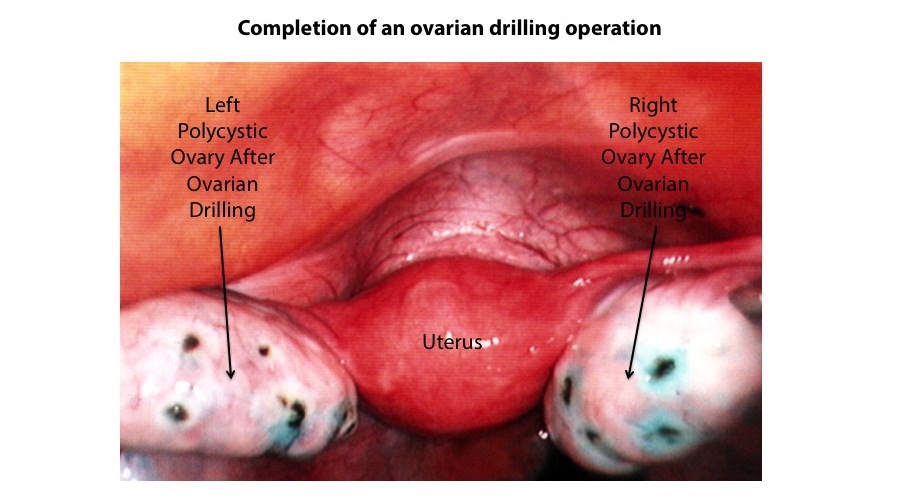If you have been diagnosed with polycystic ovary syndrome (PCOS),you are probably no stranger to fertility problems. You may have tried to lose weight or take different fertility drugs to help you conceive. But if these PCOS fertility treatments did not work for you, you may wonder if there is another option. Ovarian drilling could be your answer.
Ovarian drilling PCOS treatment
Polycystic ovary syndrome can cause your body to produce too much testosterone and insulin, leading to fertility problems. High testosterone levels can cause irregular menstrual cycles, prevent ovulation and hinder pregnancy. PCOS treatments, including ovarian drilling, could help you conceive by regulating your hormone levels and improving your ovulation and menstrual cycles.
Ask a fertility specialist about PCOS
How does ovarian drilling work?
It may sound scary, but “ovarian drilling” is relatively simple and minimally invasive. Ovarian drilling is a laparoscopic procedure performed under general anesthesia. The surgery is typically done on an outpatient basis with minimal recovery time. Here is how ovarian drilling works:
- Your surgeon makes a small incision below your belly button.
- He or she inserts a tube into your abdomen, filling it with carbon dioxide. This inflates your abdomen and prevents damage to your internal organs.
- A thin telescope with a camera attached is inserted into your abdomen, allowing your surgeon to view your internal organs and ovaries. Guided by the camera, the surgeon inserts special tools and uses an electric current to make very small holes on your ovaries.
With PCOS, your ovaries may have a thick outer surface, which can affect your ability to get pregnant. Ovarian drilling breaks through the ovary’s thick outer layer, destroys small portions of it, and boosts fertility. After ovarian drilling, testosterone production decreases and many women ovulate more regularly.
Will ovarian drilling work for me?
If your periods become regular after ovarian drilling, your chances of pregnancy are good. About half of all women that go through with ovarian drilling become pregnant within one year. Even if your cycles do not become more regular after ovarian drilling, you may have better success in getting pregnant with the help of fertility drugs. For some women, the benefits of ovarian drilling are short-lived. PCOS symptoms and fertility problems may return over time, and your periods could become irregular again.
Is ovarian drilling safe?
There are some risks associated with ovarian drilling, as outlined below.
- There is a minimal risk of bleeding, infection and death, like with most surgeries.
- Risks of anesthesia are also present.
- Tools used during the procedure could damage your internal organs.
- Your doctor could destroy too much of the ovary. This could cause your egg supply to diminish at a young age, sending you into early menopause.
- Scar tissue can form between the ovaries and fallopian tubes. This can make conception even more difficult after the surgery.
Due to these factors, ovarian drilling is only advised for women whose fertility problems stem from PCOS. It is also only indicated for women with PCOS who have not had success with other fertility treatments.
